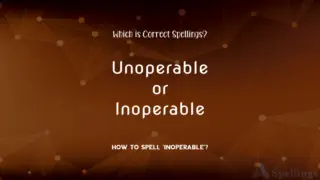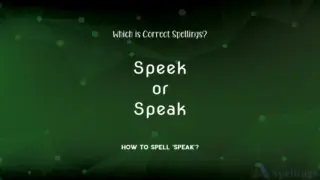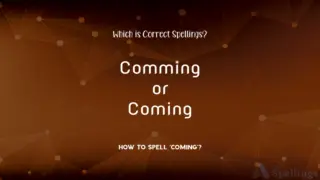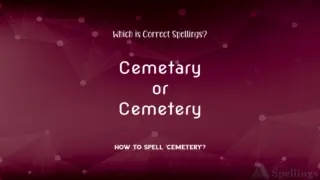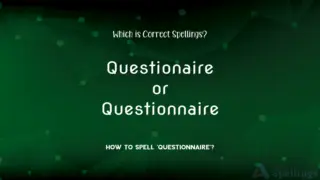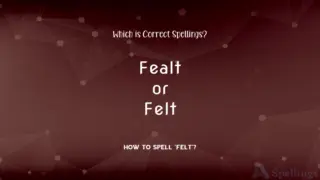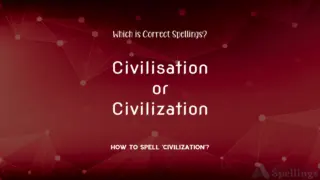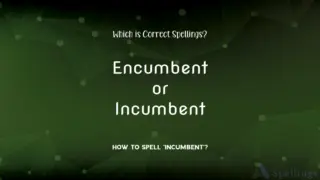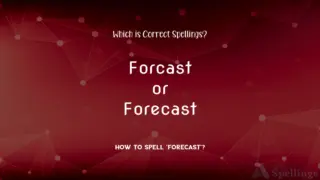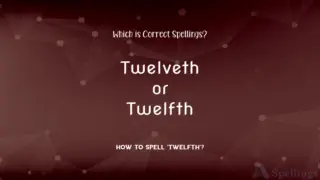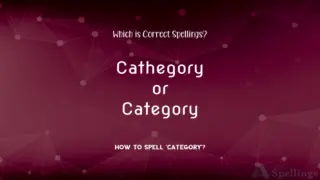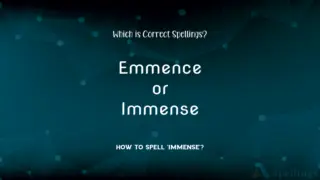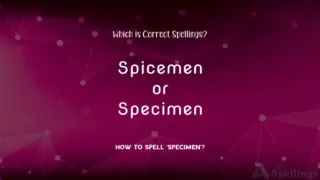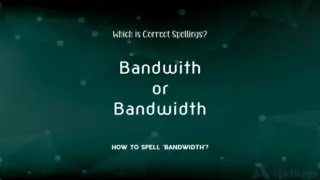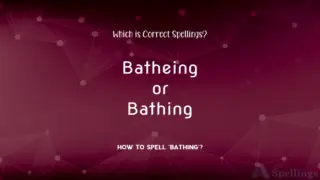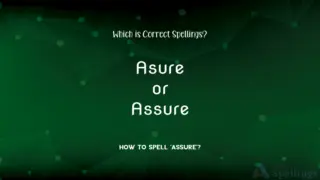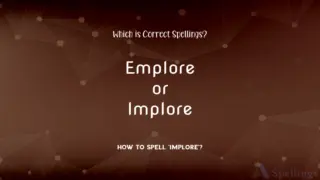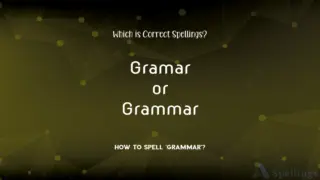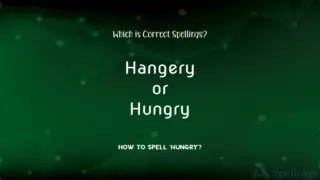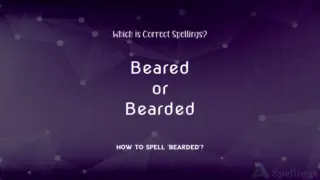Sence or Sense: Which is Correct Spellings?
The incorrect spelling is "sence," while the correct spelling is "sense." "Sense" refers to one's ability to perceive, understand, or make rational judgments based on information received through the senses.
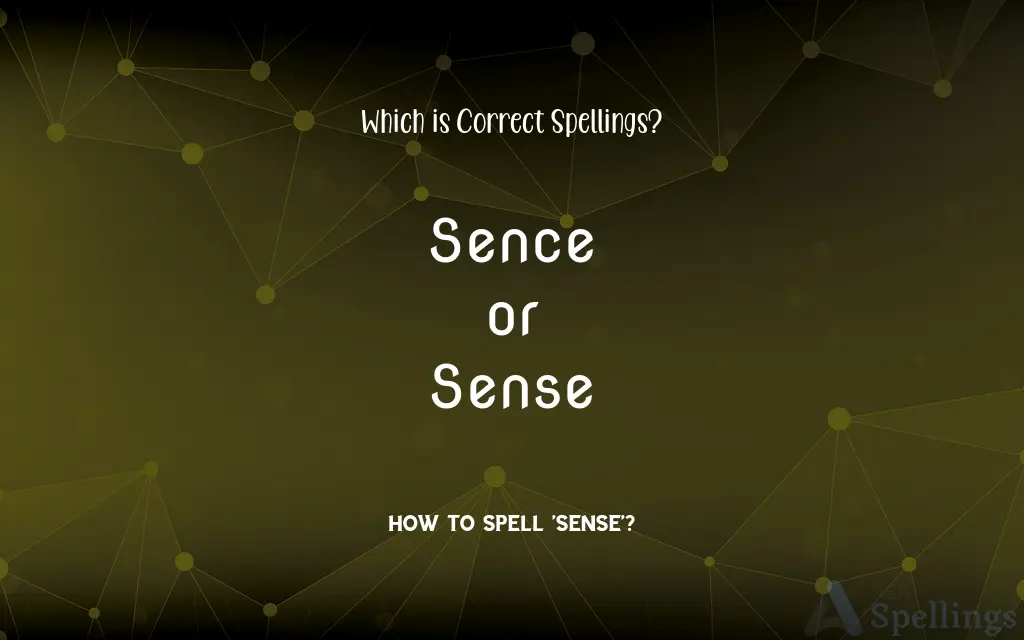
Which is correct: Sence or Sense
How to spell Sense?

Sence
Sence Spelling

Sense
Sense Spelling
Table of Contents
Is it Sence or Sense
Use "sense" when referring to perception or understanding.
Think of "sense" as your ability to make sense of the world.
"Sence" is incorrect; "sense" is the standard spelling.
"Sense" is commonly used in American English.
How Do You Spell Sense Correctly?
Incorrect: His actions didn't make any "sence" in that situation.
Correct: His actions didn't make any "sense" in that situation.
Incorrect: She had a sixth "sence" about impending storms.
Correct: She had a sixth "sense" about impending storms.
Incorrect: The teacher's explanation didn't make "sence" to the students.
Correct: The teacher's explanation didn't make "sense" to the students.
Incorrect: He has a keen "sence" of humor.
Correct: He has a keen "sense" of humor.
Incorrect: It's important to trust your common "sence."
Correct: It's important to trust your common "sense."
Sense Definitions
Sense can also mean a feeling or awareness, often implying good judgment or rational understanding.
It doesn't make sense to go out without an umbrella in this rain.
Sense, as a noun, refers to one's ability to perceive information through the senses, such as sight, hearing, taste, smell, or touch.
Her sense of smell is highly sensitive.
Sense is used to describe a particular meaning or interpretation of something.
The word bark can have different senses depending on context.
Sense can denote a feeling of awareness or consciousness.
He had a sense that something was wrong.
In a broader sense, it can refer to an understanding or awareness of a situation or fact.
The company had a sense of urgency to meet its deadlines.
Sense Meaning in a Sentence
Trust your sense of intuition; it can guide you well.
His keen sense of hearing allows him to detect even faint sounds.
In this context, "sense" means having good judgment.
Common sense tells us not to touch a hot stove.
He acted with a sense of purpose, determined to achieve his goals.
The teacher explained the concept in a way that made sense to the students.
Sense of humor varies from person to person.
Her sense of taste is finely tuned, allowing her to distinguish subtle flavors.
The scent of freshly baked bread awakened her sense of smell.
Losing your sense of direction can be disorienting.
She had a strong sense of empathy for those in need.
The artist's use of color evokes a strong sense of emotion.
She had a sense of satisfaction after completing the challenging task.
Trust your instincts; they are often a reliable sense of guidance.
The poem conveys a sense of nostalgia for the past.
The detective had a keen sense of observation, noticing even the smallest details.
She had a sense of foreboding about the upcoming exam.
The painting captures the essence and sense of place.
He had a strong sense of duty to his country.
The therapist helps individuals regain their sense of self-esteem.
His sense of responsibility drives him to help others.
Sense of timing is crucial in comedy.
The suspenseful novel had readers on edge, eager to find out what happens next.
The comedian's sharp sense of humor kept the audience laughing throughout the show.
Sense of community is essential for building strong neighborhoods.
The movie left a lasting sense of awe among the audience.
A sense of belonging is important for mental well-being.
The aroma of freshly brewed coffee awakened her sense of taste.
The music evoked a strong sense of nostalgia for his childhood.
Sense of direction can be challenging when hiking in the wilderness.
Sense Idioms & Phrases
Sixth sense
An intuitive power of perception beyond the ordinary five senses.
She has a sixth sense when it comes to detecting lies.
Common sense
Good sense and sound judgment in practical matters.
Using common sense, she brought an umbrella in case it rained.
Make sense of
To understand something that is complicated or unfamiliar.
He tried to make sense of the complex instructions.
In a sense
To a certain extent; somewhat.
In a sense, his criticism was justified.
Sense of humor
The ability to appreciate or express humor.
Her sense of humor always lightens the mood.
No sense
Illogical or nonsensical.
Arguing about it now makes no sense.
Sense of direction
The ability to know or intuitively feel which way one should go.
I have a good sense of direction and rarely get lost.
Sense of belonging
The feeling of being connected and accepted within a group.
The community project fostered a sense of belonging among the neighbors.
Sense of purpose
A feeling of having a goal or direction.
Volunteering gave him a renewed sense of purpose.
Come to one’s senses
To regain consciousness or return to a normal state of mind.
After the shock, he quickly came to his senses.
Sense of urgency
The feeling that something requires swift action.
The crisis gave everyone a sense of urgency.
Sense of achievement
The feeling of having accomplished something.
Completing the marathon gave him a great sense of achievement.
Sense of wonder
A feeling of amazement and admiration, often inspired by something new or unfamiliar.
The grand canyon always instills a sense of wonder.
Out of one’s senses
Behaving in a way that is perceived as crazy or irrational.
You must be out of your senses to go hiking in this weather.
Sense of justice
A feeling of the need for fairness and honesty.
The lawyer was driven by a strong sense of justice.
Sense of duty
A feeling of moral or social responsibility.
He joined the military out of a sense of duty.
Lose one’s sense of time
To become unaware of the passage of time.
She was so engrossed in her book that she lost her sense of time.
A keen sense of
Having a highly developed awareness or ability in a specific area.
She has a keen sense of detail in her artwork.
Sense of reality
An awareness or understanding of the real world and one’s surroundings.
Virtual reality can sometimes blur our sense of reality.
Sense of adventure
The desire for new and exciting experiences.
Her sense of adventure led her to travel the world.
Common Curiosities
What is the pronunciation of sense?
Sense is pronounced as /sɛns/ in American English.
How many syllables are in sense?
Sense has one syllable.
How do we divide sense into syllables?
Sense is a single syllable and is not divided.
What is a stressed syllable in sense?
The entire word sense is stressed, as it is only one syllable.
Is sense an adverb?
No, sense is not an adverb.
What is the root word of sense?
The root word of sense is from the Latin "sensus," meaning feeling or perception.
What is the verb form of sense?
Sense itself is both a noun and a verb.
Is sense a negative or positive word?
Sense is neutral; it is neither inherently negative nor positive.
Which vowel is used before sense?
The vowel used before sense varies depending on the context of the sentence.
Is sense a noun or adjective?
Sense is primarily a noun and also a verb, but not an adjective.
Is the word “sense” a Direct object or an Indirect object?
Sense can be a direct object in sentences like "I lost my sense of smell."
What part of speech is sense?
Sense is both a noun and a verb.
Why is it called sense?
It's called sense, derived from Latin "sensus," referring to faculties of perception or conscious feeling.
What is the opposite of sense?
The opposite of sense could be "nonsense" or "insensitivity."
What is the third form of sense?
The third form (past participle) of sense as a verb is "sensed."
What is the singular form of sense?
The singular form is "sense."
What is the plural form of sense?
The plural form is "senses."
Is sense a vowel or consonant?
Sense is a word, not a vowel or consonant.
Is sense a countable noun?
Sense can be a countable noun in certain contexts (e.g., "several senses").
Which determiner is used with sense?
Determiners like "a," "the," or "this" can be used with sense depending on the context.
What is the second form of sense?
The second form (simple past) of sense as a verb is "sensed."
Which article is used with sense?
Both the definite article "the" and the indefinite article "a" can be used with sense, depending on the context.
Is the sense term a metaphor?
Sense can be used metaphorically in certain contexts.
Is the word sense Gerund?
The gerund (verb + ing) form of sense is "sensing."
What is another term for sense?
Another term for sense could be "perception" or "awareness."
What is the first form of sense?
The first form (base form) of sense as a verb is "sense."
How is sense used in a sentence?
Example: "She has a keen sense of humor."
Which preposition is used with sense?
Prepositions like "of" (as in "sense of smell") are commonly used with sense.
Which conjunction is used with sense?
Conjunctions like "and" or "but" can be used in sentences containing sense.
Is sense an abstract noun?
Sense, when used as a noun, can be considered an abstract noun as it refers to a mental or emotional perception, not a physical object.
Is sense a collective noun?
No, sense is not a collective noun.
Is the word sense imperative?
Sense can be used in an imperative form when it is the verb, as in "Sense the mood of the room."
Share Your Discovery

Previous Spelling
Occassion or Occasion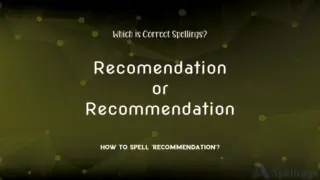
Next Spelling
Recomendation or Recommendation
